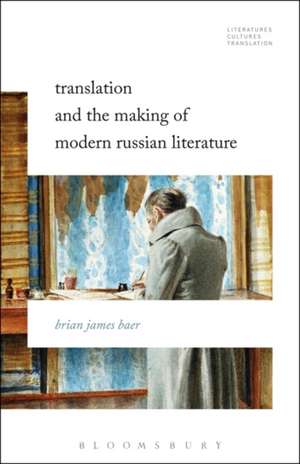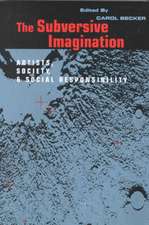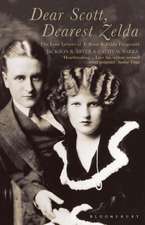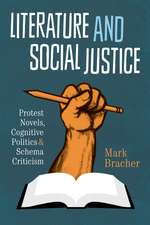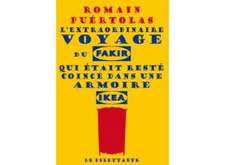Translation and the Making of Modern Russian Literature: Literatures, Cultures, Translation
Autor Professor Brian James Baeren Limba Engleză Paperback – 18 noi 2015
| Toate formatele și edițiile | Preț | Express |
|---|---|---|
| Paperback (1) | 291.90 lei 6-8 săpt. | |
| Bloomsbury Publishing – 18 noi 2015 | 291.90 lei 6-8 săpt. | |
| Hardback (1) | 821.21 lei 6-8 săpt. | |
| Bloomsbury Publishing – 18 noi 2015 | 821.21 lei 6-8 săpt. |
Preț: 291.90 lei
Nou
55.91€ • 60.66$ • 46.59£
Carte tipărită la comandă
Livrare economică 04-18 decembrie
Specificații
ISBN-10: 1628927984
Pagini: 224
Dimensiuni: 140 x 216 x 15 mm
Greutate: 0.32 kg
Editura: Bloomsbury Publishing
Colecția Bloomsbury Academic
Seria Literatures, Cultures, Translation
Locul publicării:New York, United States
Caracteristici
Notă biografică
Brian James Baer is Professor of Russian and Translation Studies at Kent State University, USA. He is the author of Other Russias: Homosexuality and the Crisis of Post-Soviet Identity, which was named a Choice Outstanding Academic Title for 2011, and the editor or co-editor of five books, including Russian Writers on Translation. An Anthology (co-edited with Natalia Olshanskaya, 2013). He is the Founding Editor of the journal Translation and Interpreting Studies.
Cuprins
AcknowledgmentsIntroductionBorn in TranslationChapter OneReading between, Reading among: Poet-Translators in the Age of the DecembristsChapter TwoThe Translator as Forger: (Mis)Translating Empire in Lermontov’s Hero of Our Time and Roziner’s A Certain FinkelmeyerChapter ThreeThe Boy Who Cried “Volk”!: (Mis)Translating the Nation in Dostoevsky’s “Peasant Marei” and Iskander’s “Pshada”Chapter FourRe-figuring Translation: Translator-heroines in Russian Women’s WritingChapter FiveImitatio: Translation and the Making of Soviet SubjectsChapter SixReading Wilde in Moscow, or le plus ça change: Translations of Western Gay Literature in Post-Soviet RussiaChapter SevenUnpacking Daniel Stein, or Where Post-Soviet Meets PostmodernBibliographyIndex
Recenzii
The advantage of Baer's approach here is that it offers rereadings of canonical literary works and popular works in which the Romantic national framing of literary studies is exposed, deliberately mystifying its own origins in translational and intercultural exchange, and shown to be inadequate to the problems of multilingualism, subjectivity, and identity engaged by Russian literature, enabling a decentering of the usual narratives of national literary development . There are challenging and sophisticated interpretive insights at every turn, and a sustained engagement with the problematic Romantic national literary paradigm, particularly as it applies to the hierarchical binaries of original/translation and author/translator.
"[Baer's] archly intelligent critical take makes a vital intervention at the heart of Russian literary studies, undermining any illusions of a stable national canon and simultaneously calling into sharp question what it is that we talk about when we talk about Russian literature. ... Baer's book makes an undeniable contribution to several fields; and its very division into micro-histories and case studies lends itself beautifully to the course syllabus. For teachers and scholars looking to address some of the many lacunae in Slavic literary studies, Translation and the Making of Modern Russian Literature offers a powerful tool and an excellent start.
A very interesting and timely book that simultaneously addresses at least three overlapping but significantly different audiences: those who are interested in translation history in general and Russian translation history in particular, the siren call of Romantic nationalism, and sexuality and gender.
Baer's book is a good bibliographical resource for scholars in Russian and translation studies, and his chapter on Wilde is an excellent commentary on the intersection of culture, sexuality, translation, and politics in contemporary Russia.
Engaging, coherent and thought provoking, this book balances translation studies with literary criticism, socio-political commentary with text-based analysis. As is Baer's own hope, it will likely be of interest to Slavists and translation scholars alike.
[The book] extend(s) Translation Studies into the field of Russian scholarship in productive and valuable ... directions.
[A] valuable contribution to the ever-growing body of work in the field of translation studies. By translation, however, the author does not mean merely a technique for rendering a text from one language into another, but rather a broadly conceived recontextualization of cultural values . Baer is an incisive thinker who formulates his ideas clearly without vexing the reader with pretentious terminology. Summing Up: Recommended.
The book reaches out especially to Slavists doing their research or teaching in the field of Russian literature. In addition to being a very well-written volume,Translation and the Making of Modern Russian Literaturehelps us to envisage new histories of Russian Literature, in which translation is rehabilitated in its variety of productive roles.
Descriere
Brian James Baer explores the central role played by translation in the construction of modern Russian literature. Peter I’s policy of forced Westernization resulted in translation becoming a widely discussed and highly visible practice in Russia, a multi-lingual empire with a polyglot elite. Yet Russia’s accumulation of cultural capital through translation occurred at a time when the Romantic obsession with originality was marginalizing translation as mere imitation. The awareness on the part of Russian writers that their literature and, by extension, their cultural identity were “born in translation” produced a sustained and sophisticated critique of Romantic authorship and national identity that has long been obscured by the nationalist focus of traditional literary studies. By offering a re-reading of seminal works of the Russian literary canon that thematize translation, alongside studies of the circulation and reception of specific translated texts, Translation and the Making of Modern Russian Literature models the long overdue integration of translation into literary and cultural studies.
